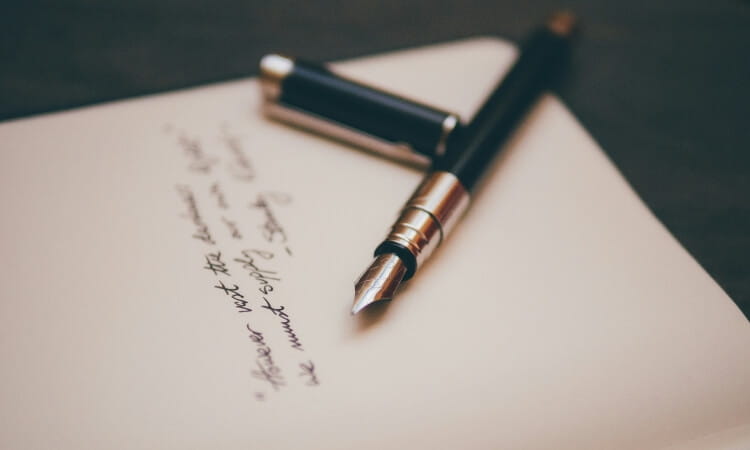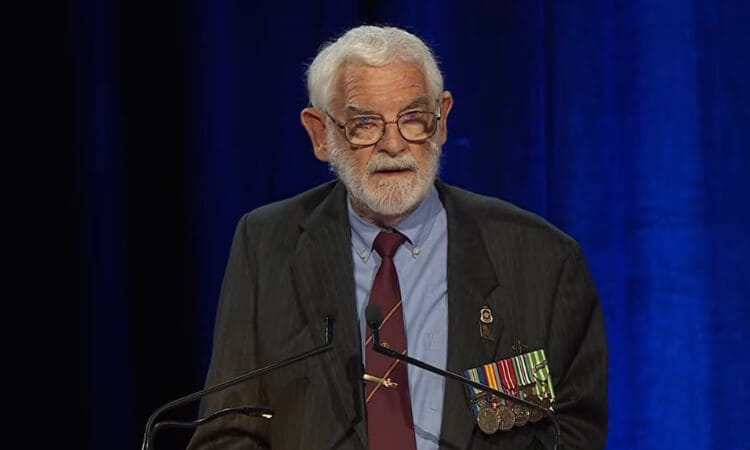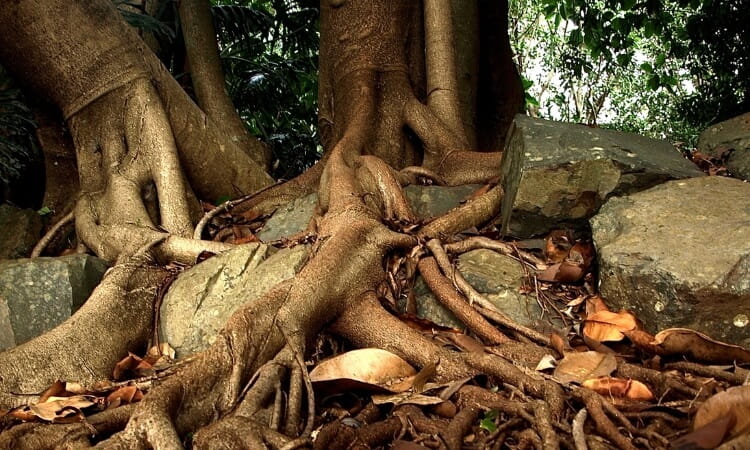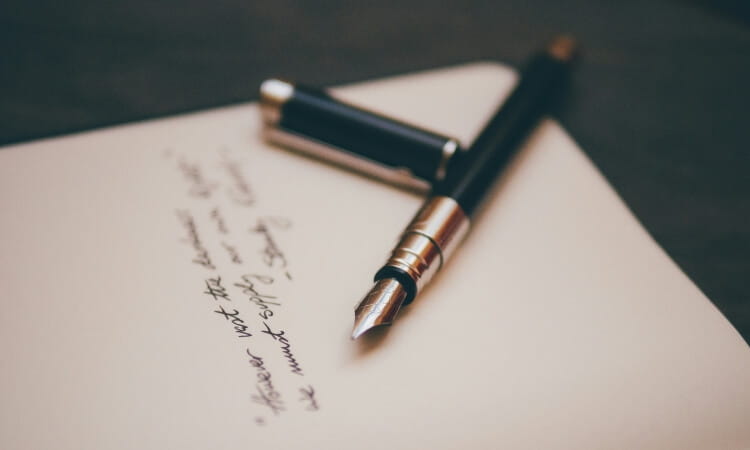Meet Louise: 2024 Bruce Dawe National Poetry Prize Winner

Between The Sheets
After I tell my mother that my boyfriend and I have moved in together and she has expressed a mix of disapproval and relief that I am not, at least, frigid, that unlike her friends, she had always found that side of marriage very decent indeed, we begin folding the sheets, taking the first by its corners and thwacking it into submission, bringing the sides together and pulling them straight, our hands moving in unison, the steps well-practised by now, this not our first time on the dance floor, and she's telling me how each of her five children came about, the first three always part of the plan, deed done, cells busy dividing, between sheets one and two, the fourth child taking longer, the sheet inexplicably falling from my hands and puddling on the floor as she recounts a hot night after a day at the beach, she waking him to rub salve into her sunburn, the salve reaching places the sun never did, and by the time we get to the last sheet and child number five and they're in the laundry in the middle of the night putting a tube of contraceptive jelly through the wringer, we're both laughing and the sheet is as tangled as theirs that night, but when finally it’s folded, something has shifted, and with the brief touch of our hands as I step forward and she takes it to place with the rest, it is as two women, meeting for the first time.
Poet Louise Nicholas started this poem in early 2023.
As it often goes when writing, the process that followed was non-linear – moving back and forth between stages, draft after draft, moments of inspiration changing the direction and an ending that took a few run-ups.
After almost a year of refinement and fine-tuning (and 20 drafts!), it was aptly named ‘Between the Sheets’ – a touching ode to a special memory shared with her mother.
Much to her surprise, it earned her top honours in the 2024 Bruce Dawe National Poetry Prize.
We recently caught up with Louise to discuss her creative process, the inspiration behind her winning work, and the origins of her love for poetry.
What was the inspiration behind your work ‘Between the Sheets? How long were you working on it before it was ‘finished’?
My mother has inspired many poems. The words italicised were hers – but they were in a letter, not part of our conversation that day. And though I helped her fold sheets sometimes, we were actually making beds when she told me how each of her five children came about. I chose to set the scene with sheet-folding simply because there’s more of a rhythm to it than there is in making beds.
As with many of my more successful (by my standards) poems, if I can get the beginning of the poem right – by which I mean the tone of voice, the manner of its telling – the rest can have an inevitability about it, one word/phrase/sentence flowing on from what came before, with relative ease. This was one such poem.
The ending took a few run-ups, however. I had no idea where the poem was going once those sheets were folded and the story had been told. Only that it represented something important in both our lives. My mother needed to tell it, and I needed to hear it. So, I did what I often do in that situation – I read the poem out loud over and over, and when I got to the end, took a leap of faith into this group of words or that until it not only sounded right but felt true. Sort of like doing the long jump I guess; the most successful jumps don’t just go the length; they feel right. At least, I imagine that’s the case; I was terrible at the long jump when I was at school.
Getting to that point took eight drafts over two days in February 2023 (so my computer tells me) and setting it out as a block of text arrived at draft 13 in April, after I’d set it aside for a while. There were seven more drafts during the next several months in which I went through the whole ‘put in a comma, take it out again’ routine, but the title came as a complete surprise (for how apt it was) a whole year later. Before that, it had always been titled ‘Folding the Sheets’.
My mother died 14 years ago now, so she never saw the poem. But if she had, she’d have said, ‘That’s not how it happened, Louise. You’re not being truthful.’ And I’d answer as I had on other similar occasions, ‘But the essence of the poem is true Mum, and who lets the truth get in the way of a good story?’ And she’d say, ‘Well, alright then’ and smile because secretly she liked being in some of my poems. Is it any wonder I miss her every day?
We received just under 1,700 entries in 2024. What did winning the 2024 Bruce Dawe Poetry Prize mean to you?
Well, firstly, it was an honour because Bruce Dawe was important to me when, as a novice writer, I saw an interview with him on the Sunday Arts program on the ABC in which he spoke of a poem needing to have several layers: the first layer would reward an initial reading, but with subsequent readings, deeper levels might be discovered to do with the poet’s use of metaphor (say) or word choice, echoes from earlier poets or artists, or the reader bringing their own life’s experience to bear on how they receive the poem.
But it was also a complete shock of the best kind. I’d been highly commended twice and heard via a phone call both times. This time there’d been no phone call, so when the email came, I thought it was just to inform all who’d entered of the result. I had to read it several times to realise that it really was my name listed as the winner. Believing it took a phone call to UniSQ and then, of course, I was delighted.
1,700 entries is a lot to be competing against but I also know how subjective judging a poetry competition can be. There are so many writing styles – it would be like giving one prize for a painting competition that included portrait, landscape, impressionist, abstract, pop art etc. I just consider myself very lucky that, this time, the judges chose a narrative poem ahead of the more experimental, impressionistic, lyrical poems of Shey and Laura that I too might write if only I could! I am in awe of both.
What first drew you to poetry? Was there a particular poet or writer/poet that inspired you?
I grew up in a household where books and words were important. My mother wrote bits of rhyming doggerel for our entertainment and even wrote letters to me (when I was teaching in South Australia’s Riverland) in rhyme. I too wrote rhyming verse for the children I taught. It wasn’t until I joined the local writers’ group that I came across contemporary free verse and that was it. I was hooked. I began attending monthly workshops with Jan Owen who is not only a highly regarded and awarded poet but a brilliant teacher. ‘I’m here to speak on behalf of the poem,’ she said. ‘Not the poet’s ego.’ (Or words to that effect). She also introduced us to the work of poets from all over the world and challenged us to try different writing styles and to stay open to the possibilities. The work of Sharon Olds was a huge influence around that time but now there are so many poets whose work I find inspiring. It just depends on who I’m reading at the time. There’s always something you can learn from a close reading of a poem that blows your socks off.
What usually sparks a poem for you – a word, an image, a feeling? Do you have a writing routine or ritual?
These days, it’s reading a poem by someone else that sparks a poem. Sometimes, it’s simply what that poet has written about – but usually, it’s also the tone, the mood, the voice, and the stance the poet has taken. But over the 20 years or so during which I attended workshops with Jan Owen, the ‘spark’ for a poem was given to us – a word, a line, a topic, a form – as homework. In all those 20 years, I don’t think I ever turned up without having done my homework.
When I was teaching, I used to get up at five so I could fit in an hour or two of writing before getting ready for school, but since I’ve been retired, there are so many random calls on my time (family, friends, members of the Adelaide writing community) all of which I enjoy, that keeping to a regular writing routine is impossible. I aim instead to spend at least 10 hours a week writing, by working in half hour increments in and around other commitments.
What’s the best piece of writing advice you’ve ever received?
Without a doubt, the best advice – and it’s often said – is to read, read, read. Anything and everything but especially contemporary poetry and texts about writing poetry. To that I would add, stay open and curious to every writing style, add depth and texture to your writing by researching and looking for connections to things that might seem outside the scope of your poem, and realise that most successful poems are not the result of a single draft.
And then there’s ‘you have to write a lot if you’re to find a few diamonds in the dust heap’, and ‘Tell all the truth but tell it slant’ (Emily Dickinson).
Is there anything else you’d like to add?
A few years back now, I spent two years memorising all 101 poems in ‘By Heart’ edited by Ted Hughes. There are few, if any, that I could still recite from beginning to end. But phrases, words, images, and the rhythm of some poems have stayed with me. I recognise them in my reading of both poetry and prose as well as in my writing sometimes, and love that there’s a through road from Homer, through Shakespeare, the Romantics of my high school days etc, to poets writing today.
The University of Southern Queensland’s (UniSQ) Bruce Dawe National Poetry Prize honours the enormous contribution UniSQ Emeritus Professor Bruce Dawe AO made to Australian poetry and ensures his legacy will endure for years to come.
The winner of UniSQ’s 2025 Bruce Dawe Poetry Prize will receive $3000, and two highly commended entrants will be awarded $500 each. Submissions close 22 October.


